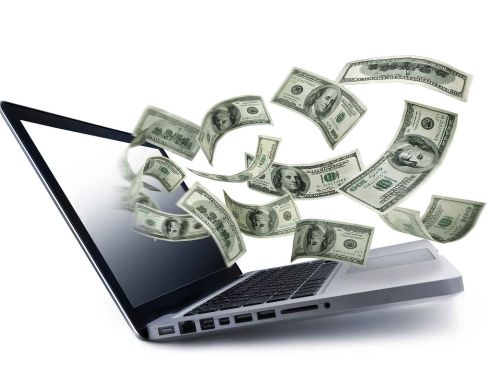If there’s one channel you’re wise to focus on this holiday season, it’s email. Its efficiency is undeniable: email offers a potential return on investment (ROI) of $42 for every $1 spent. It sounds promising, but the 2023 holiday season will be the most atypical in decades. What approach should marketers take? What changes should they make in their messages and timing? Is there a best day to send promotional emails?
First, let’s see what data from previous years shows us.
Emails sent on Thursdays get the most attention.
In a webinar on email strategy during the holidays, Oracle’s marketing researchers uncovered some interesting behavioral trends. “Most of the spikes in responder rates happened on Thursdays,” they say, referring to the 2020 and 2021 holiday seasons. “Thursdays tended to be lower volume days. With that lower competition in the inbox came a higher share of consumer attention and positive engagement,” explains Chad S. White, Head of Research at Oracle CX Marketing Consulting.
Here are a few other observations White and his colleagues made to help you pick the best time to hit “Send”:
While Thursday is a clear winner, Fridays saw a dip in responder rates.
In the days after popular holidays, sending volume drops, but engagement increases – there’s less competition, and people are more active in their inboxes.
Christmas Eve and Day had lower than average sending volume in 2019 and poor engagement. You may want to consider pausing your campaigns during those days.
Now that you have a good idea about timing let’s ensure you have everything you need to make your emails successful this holiday season.
Verify your email lists to reduce sending costs and land in the inbox
Email service providers charge based on the number of contacts you store and the number of emails you send. So, before you send, “double-check your email lists to ensure all your contacts are valid and active,” says Siva Devaki, founder and co-CEO of MassMailer.
Related: How to Write an Email Subject Line That’s Sure To Get Clicked
Especially if your business was among those affected by the pandemic, the last thing you want is to waste precious resources. Validating your lists helps reduce email marketing costs and supports good deliverability.
Using accurate lists is crucial to your email performance — but so are other pieces of the puzzle. “In the time of COVID-19, where rules and procedures are changing, prepare yourself to adopt last-minute changes in your email strategy,” says Devaki.
The email expert advises: “Update your email content to provide safety guidelines, new policies, contactless payment options, special shipping offers, curbside pickup options, shopping hours for senior citizens, and holiday hours.” Put yourself in your customers’ shoes and go out of your way to offer them a safe and enjoyable experience with your brand.
Finally, Devaki suggests, “Try boosting your customer loyalty by providing more incentives, showing your empathy, and not capitalizing on the fear people feel in these testing times.”
Related: 6 Reasons Why Building an Email List is So Important
Josh Brown, Digital Marketing Consultant at Helpjuice, focuses on creating positive emotions and reinforces this approach. “Creating feelings that we typically think of as “negative” — like fear, greed, guilt, need for approval — can effectively get people to take action. But holiday season campaigns should revolve around positive feelings and soothing experiences,” Brown told me.
This is even more true in 2020 when many people have been through a tough time. The last thing you should do is add to the hostile atmosphere.
Related: 4 Ideas for Your Holiday Marketing Campaign
“Instead,” Brown suggests, “find ways to surprise and delight subscribers and create feelings of hope, comfort, and joy. Perhaps you can share positive stories from within the company or your customer base or rally your community around a positive cause.”
Segment your list by Average Order Value.
Another helpful tip Josh Brown gives is to segment your list by Average Order Value (AOV), which tracks the average amount a customer spends each time they buy from you.
Once you calculate that, further segment your target lists based on the following:
Look at customers who had a high AOV before the pandemic but are no longer making purchases or have a much lower AOV since the pandemic. “This group of people may be loyal customers who have been hit hard — perhaps you can find a way to help them out,” Brown points out. A small business gift might be ideal.
Also, look at customers who had a high AOV before the pandemic and have maintained this trend in 2020 or new customers who have shown a high AOV during the pandemic. “Do something extra to reward this group for their loyalty by creating a memorable experience. For instance, you could plan a special unboxing moment or include some unexpected freebies that you feel they’d enjoy. The value of what you include doesn’t matter. As long as it’s authentic to your brand and resonates, it’ll be well received,” Josh Brown believes.
Stand out in people’s inboxes.
Email volumes are usually higher during the holiday season — sometimes, by up to 122 percent. “The contest for attention in the inbox is going to be even more challenging this year,” says Tom Wozniak, Executive Director of Marketing at Optizmo. “Many businesses will be leveraging email marketing and choose to kick off the traditional holiday season early. So, it’s imperative that marketers not go into Holiday Season 2020 with a business-as-usual mindset, using the same strategies that worked last year,” Wozniak told me.
Related: Constant Contact Makes Online Marketing Easier Than You Ever Imagined
His advice? “Stand out! With more competition for the attention of every recipient, email marketers need to focus on not only grabbing initial attention but also driving engagement. Whether it is a unique offer, original subject line, or different sending schedule, find a way to rise above all the other marketing emails in your recipients’ inbox. Catch their attention and then deliver great content to drive performance.”
It’s a winning strategy for our email campaigns in the future, not only during the holiday season.























Leave A Comment
You must be logged in to post a comment.